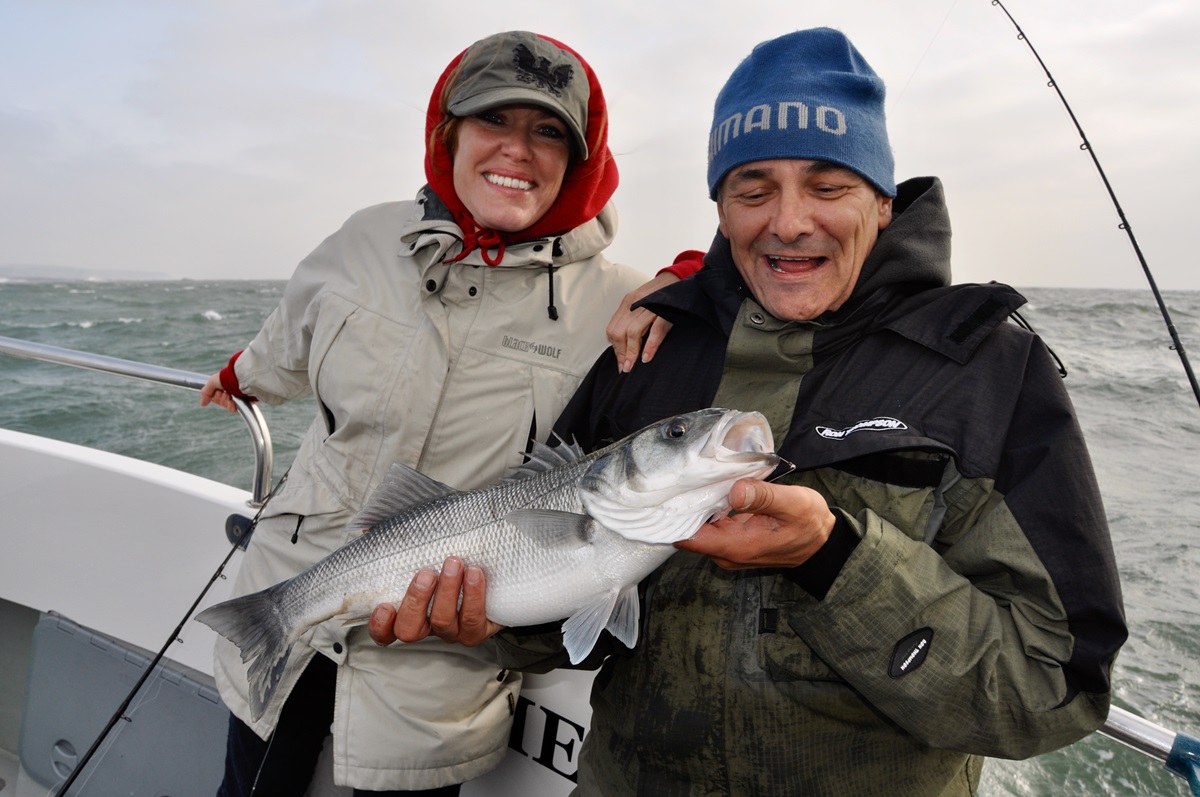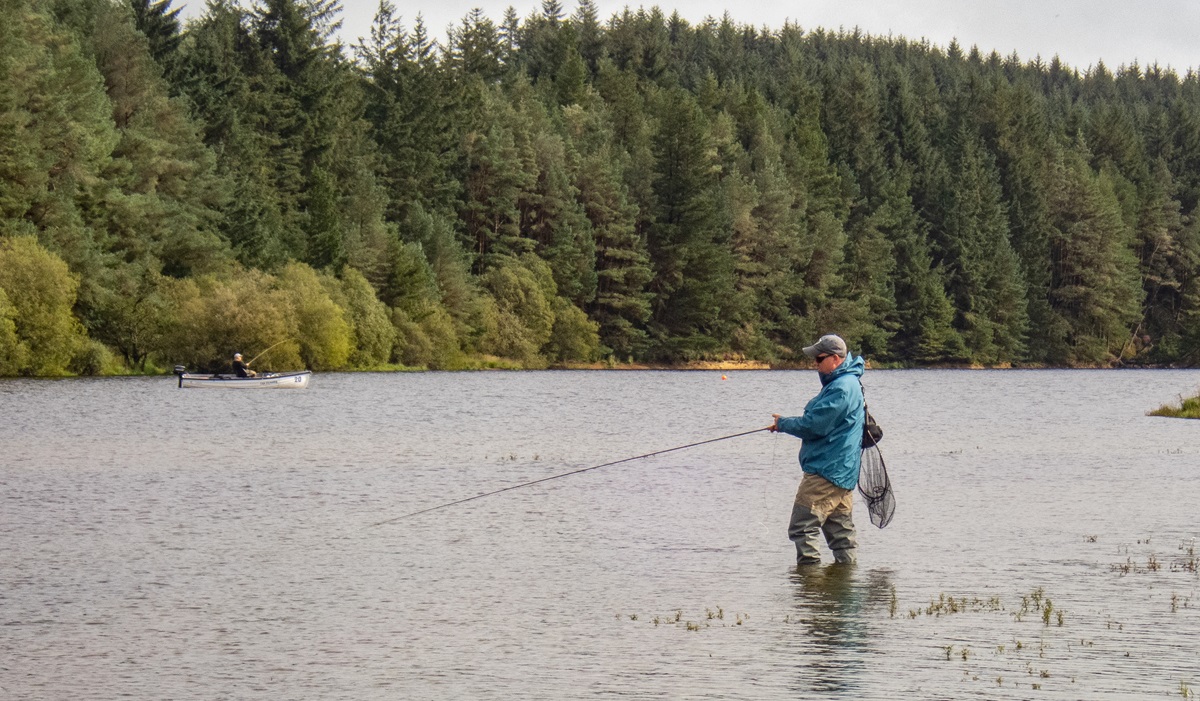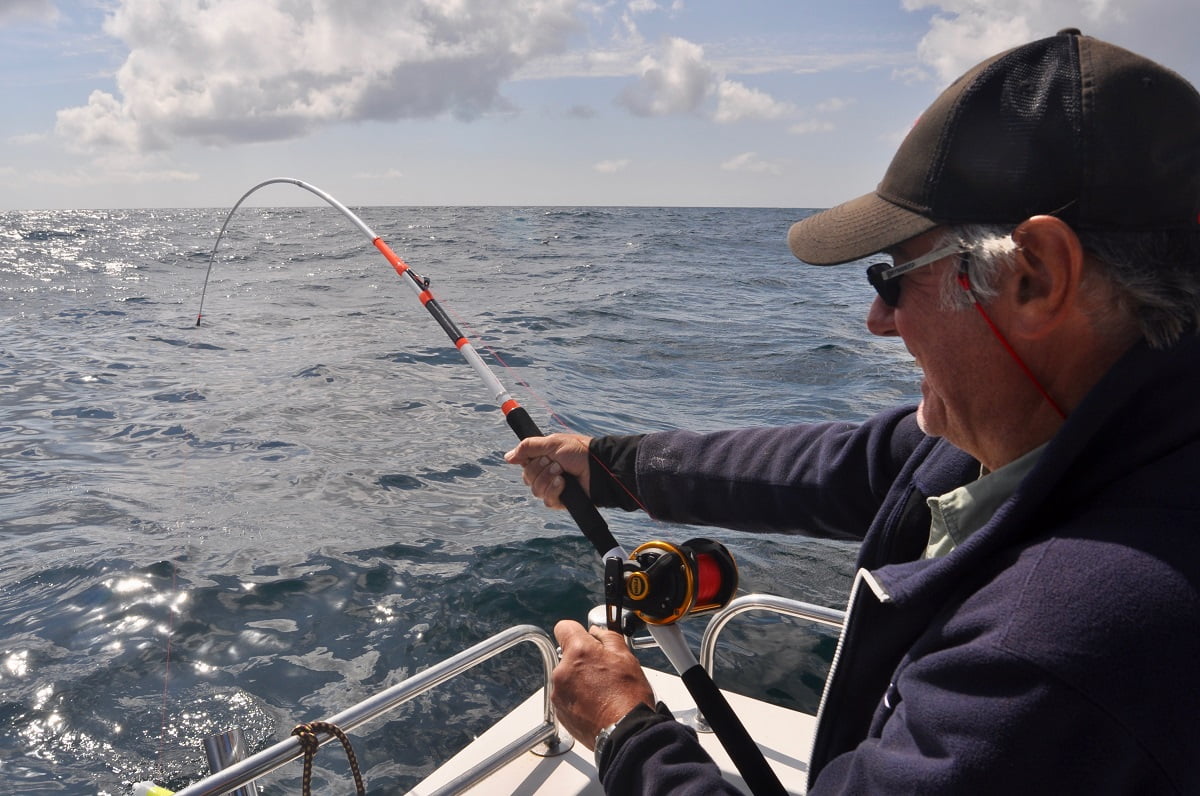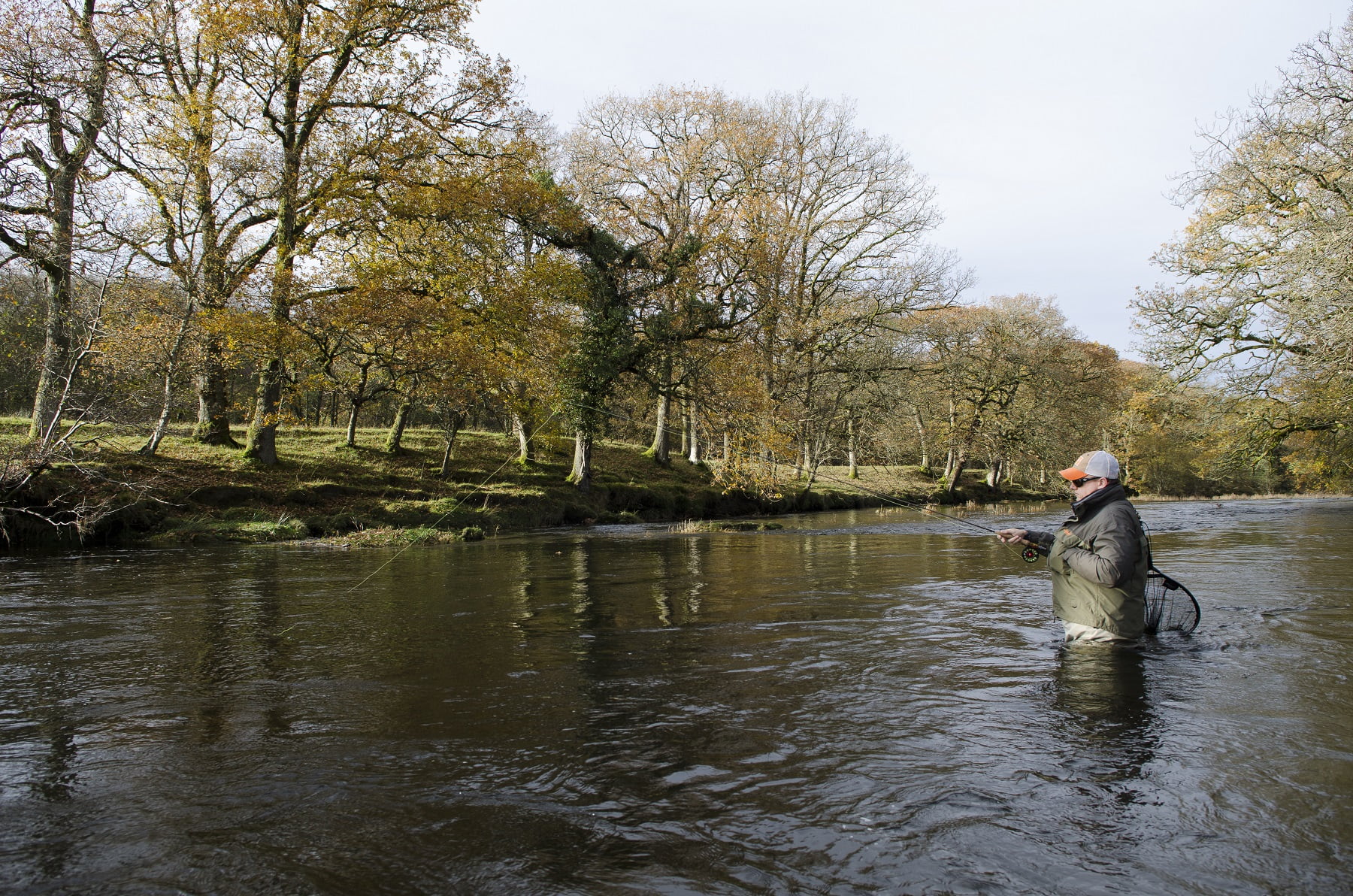September in the Salt – Bass on the Brain!
In his latest sea angling blog Dave Lewis shares his autumn delight – bass offshore!
I try to live every day as fully as possible, I’m certainly not someone who wishes his life away. But fishing consumes each and every month of the year for me and I look forward to the various challenges of each season, eagerly anticipating the various species and angling opportunities they provide.
But speaking as a sea angler, I have to be absolutely honest here and say that as the dog days of summer progress through August, I start to look forward to September with gradually shortening days heralding the onset of autumn. Autumn is the time of the year when decades of experience fishing around the coastline of Wales has invariably provided me with some of the very best fishing of the year.
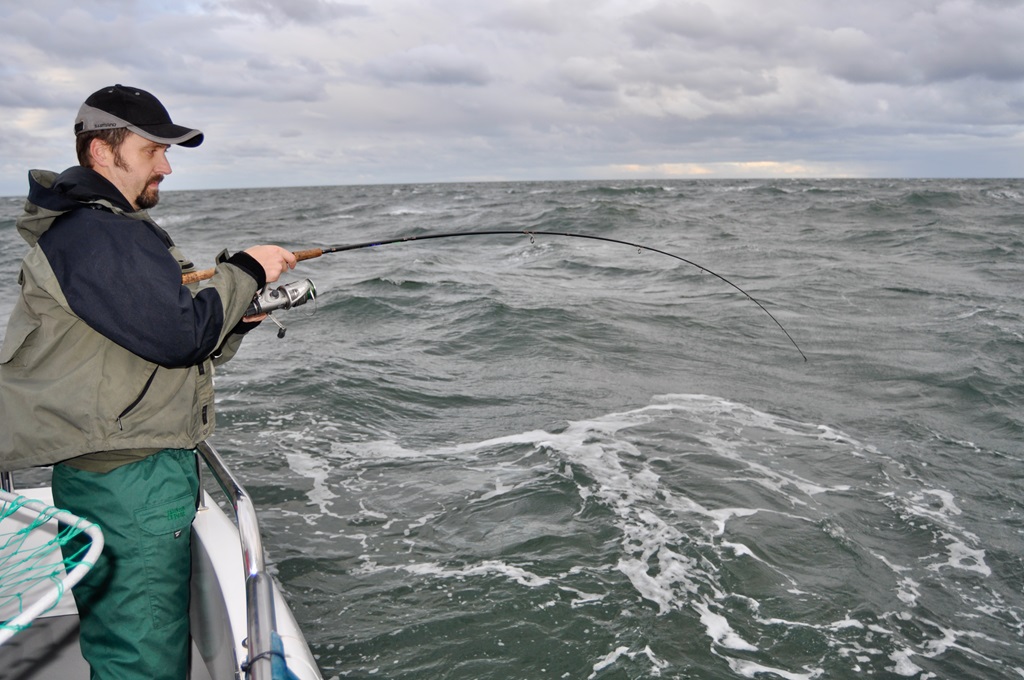
Certainly late summer and autumn are a special time for all anglers, especially those who fish in salt water. With the sea temperatures at their absolute peak all of the summer migrant species in attendance and the fish will be feeding hard, looking to pile on weight prior to heading back out into deeper water or further south for the winter. Depending on your location species such a triggerfish, red mullet, black and increasingly gilthead bream, plump Dover sole and other species of flatfish and many others, will be available to anglers fishing around the Welsh coast.
For me, though, at this time of the year one species in particular reigns supreme: bass. When I see the trees starting to change colour and detect that first ‘autumnal nip in the air, the bass fishing, in my opinion, will be at it’s very best. Of course here in Wales we often experience excellent bass fishing at other times of the year. The first flush of peeler crabs in spring can produce truly magnificent fishing for shore anglers, and the lure fishing both offshore and inshore throughout the spring and summer can be hugely productive. But for me the autumn offers the very best bass fishing of the year, with the fish in an absolute peak of condition.
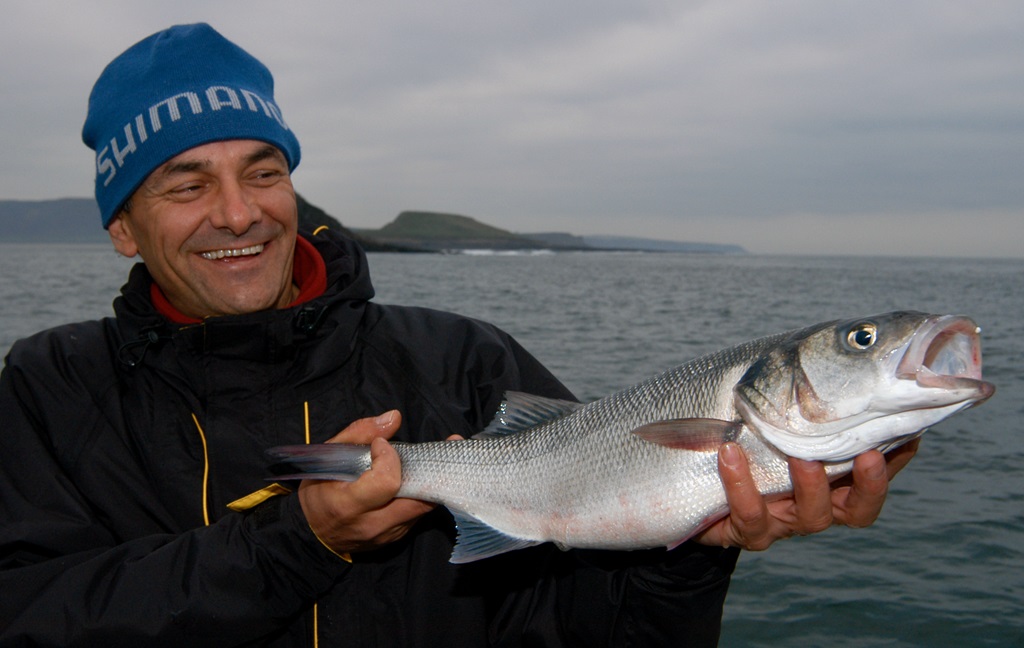
Fishing one of the many Welsh surf beaches following an onshore autumnal blow you can look forward to tremendous fishing. Large shoals of hungry bass work just behind the surf line and occasionally right up to the beach, as they greedily mop up the smorgasbord of tidbits the previous days waves will have ripped from the sanctuary of their burrows deep in the sand. I love surf fishing for bass, it is my all time favourite way of fishing for these beautiful fish, but on this occasion my tales from the surf must wait until a future blog, as we are heading offshore.
Bass are found all around the coast of Wales. From the muddied waters at the mouth of the River Wye in rural Monmouthshire to the tidal Dee in Flintshire, anglers fish for and catch bass. And as we have seen the autumn is the time of year when bass feed hard, and nothing is more effective for catching these hard fighting fish than livebait.
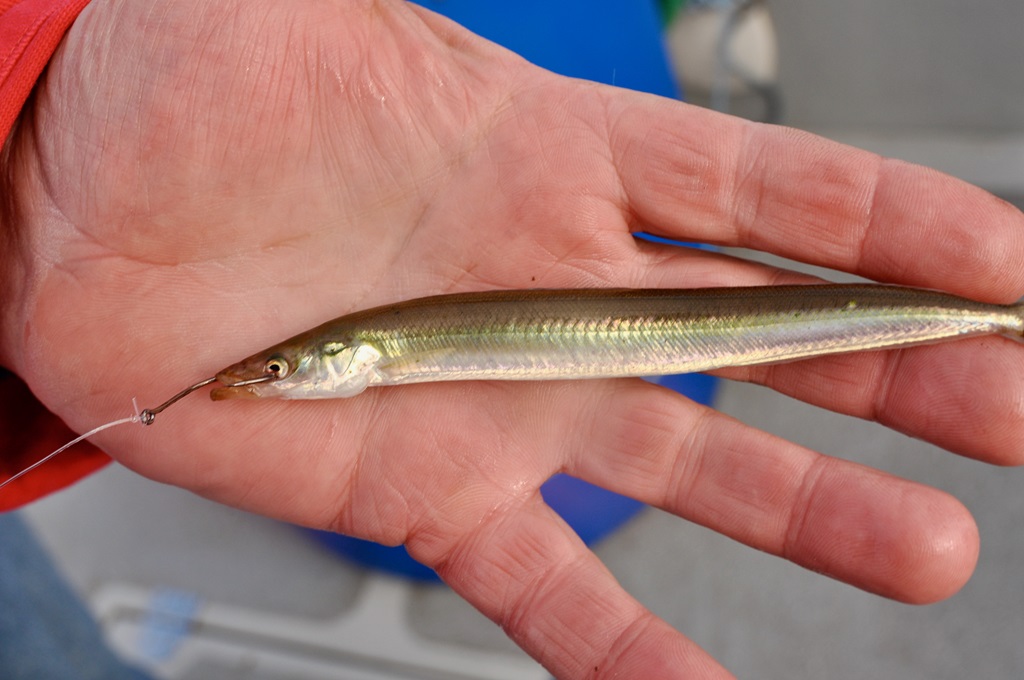
Sandeels, if these are available in the area you are fishing are deadly. Sandeels can be purchased at some coastal tackle shops and a few charter skippers can obtain a supply when required, but it’s worth noting that if live sandeels are not available, often fishing a dead, previously blast frozen eel can produce excellent results. Live mackerel will likely be plentiful in many areas and these, too, are hugely effective for bass. Live king ragworm are another excellent bait for bass afloat.
The most effective technique for catching bass using livebait offshore is simplicity in itself; a long flowing trace consisting of 8-15ft of clear 15-20lbBS monofilament rigged to fish off a basic running leger. Hook size is chosen on the basis of what bait you are using, more specifically the size of bait. If using live sandeels or ragworm short shanked size 2 or 4 circle or semi-circle hooks are perfect. If you are using mackerel increase to size 1-1/0, again depending on the size of your bait. The bait is hooked near the head to keep it alive and as active in the water as possible.
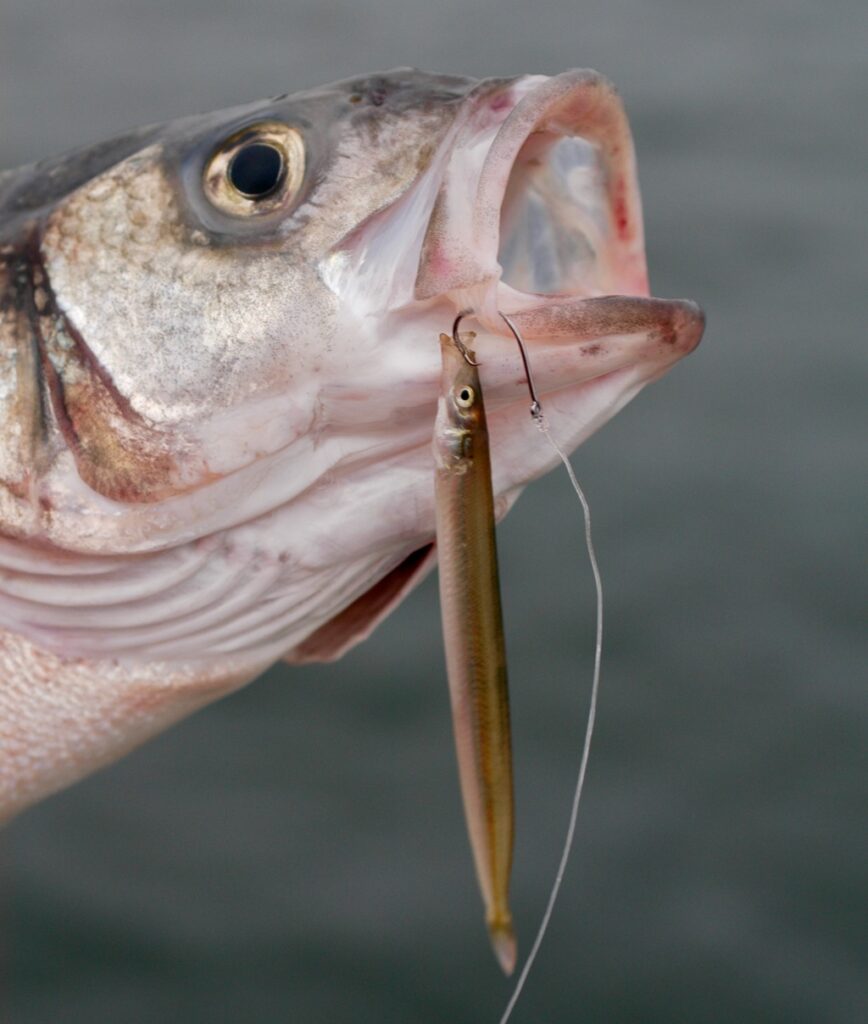
You’ll need to use just enough lead to get your bait down through the water column, and then maintain contact with you rig. Rounded lead weights are best as these fall freely without rolling, which can result in a twisted tangle of a trace. Some anglers use a multiplier reel and light boat rod, others prefer a spinning rod and fixed spool; the choice is yours.
Boats fish on the drift when livebaiting for bass. It is important to always remain in control of your tackle and if tangles are to be avoided, to be aware of other anglers lines. At the start of the drift drop your bait into the water and allow the long trace to fully straighten, before slowly lower the rig down to the bottom. Dropping down too fast can result in tangles. As soon as you feel the lead tap on the seabed retrieve a few yards of line.
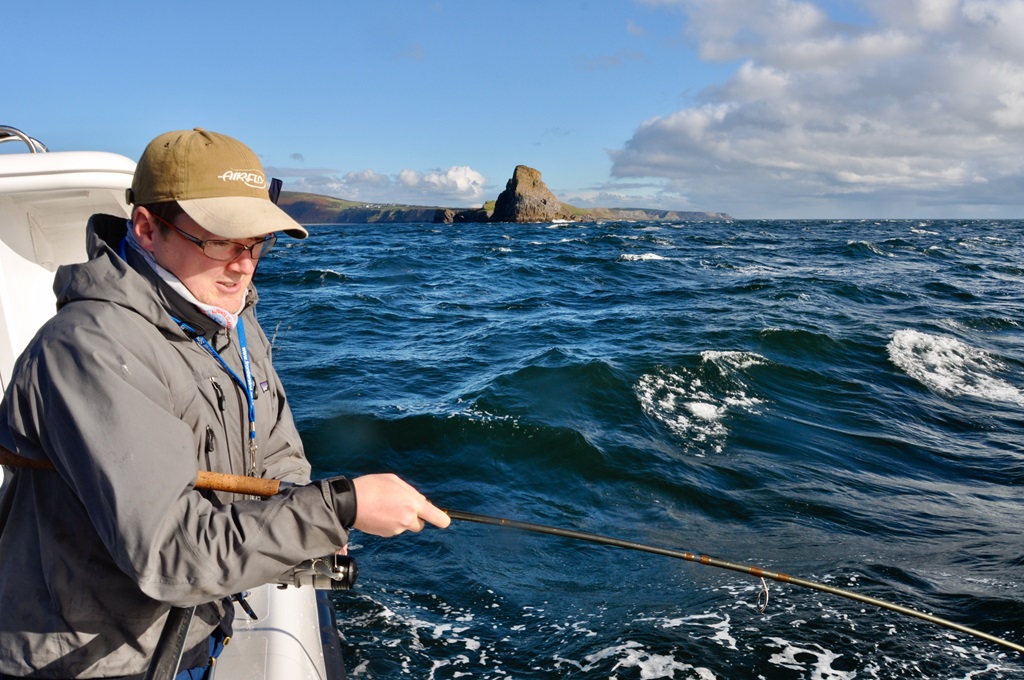
You need to be alert for bites at all times when a bait is in the water, as bass can be caught at any depth. Start your day fishing various depths, in order to establish where the fish are feeding. When you feel a fish grab your bait give it a moment or two to fully inhale it, then as the line starts to tighten, set the hook by lifting the rod.
Bass feed best in fast running water. Productive marks are tide runs that push hard past a headland or an offshore island, or over a sand banks, a reef, a wreck or other sub surface feature. Sea conditions will be dependent on the prevailing wind along with the size and direction of flow of the tide, and often the fishing will be at it’s very best when conditions are choppy.
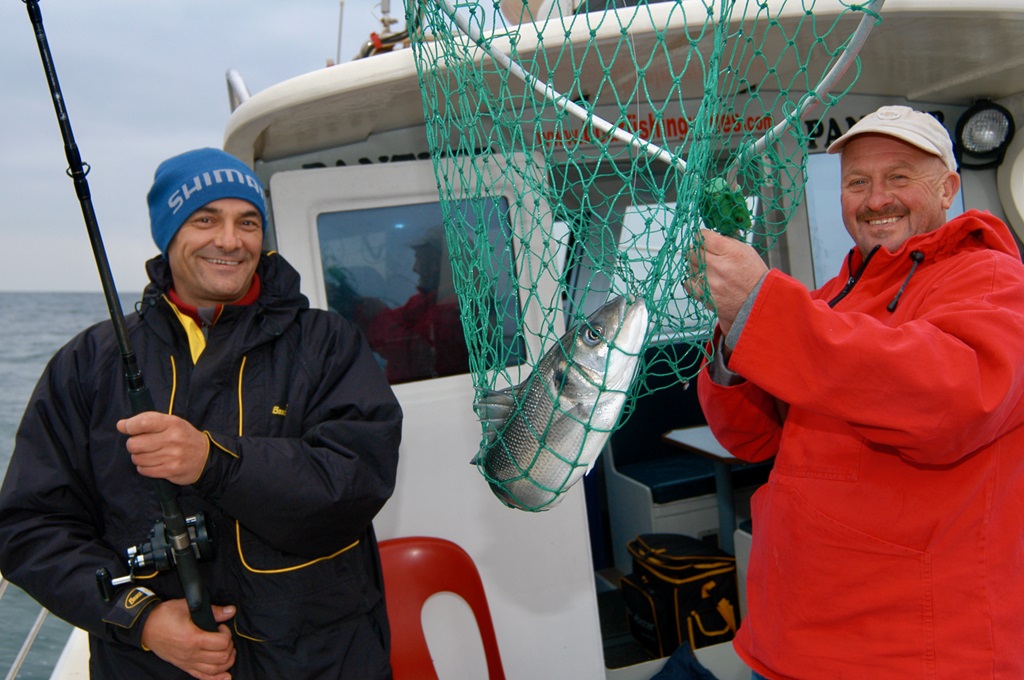
You’ll find charter boats running bass trips at many Welsh ports. Many charter boats accept bookings from individual or small groups of anglers but you can, of course, book the whole boat for a private charter. For more information local tackle shops, as always, are an invaluable source of information.
Please note that in Wales, as elsewhere in the UK, a maximum of two bass over a minimum size of 42cm may be retained per fisherman per day (00:00 to 23:59 hours) during January, and the period from 1 April to the end of December 2024. If bass are caught during February and March, they must be immediately released.
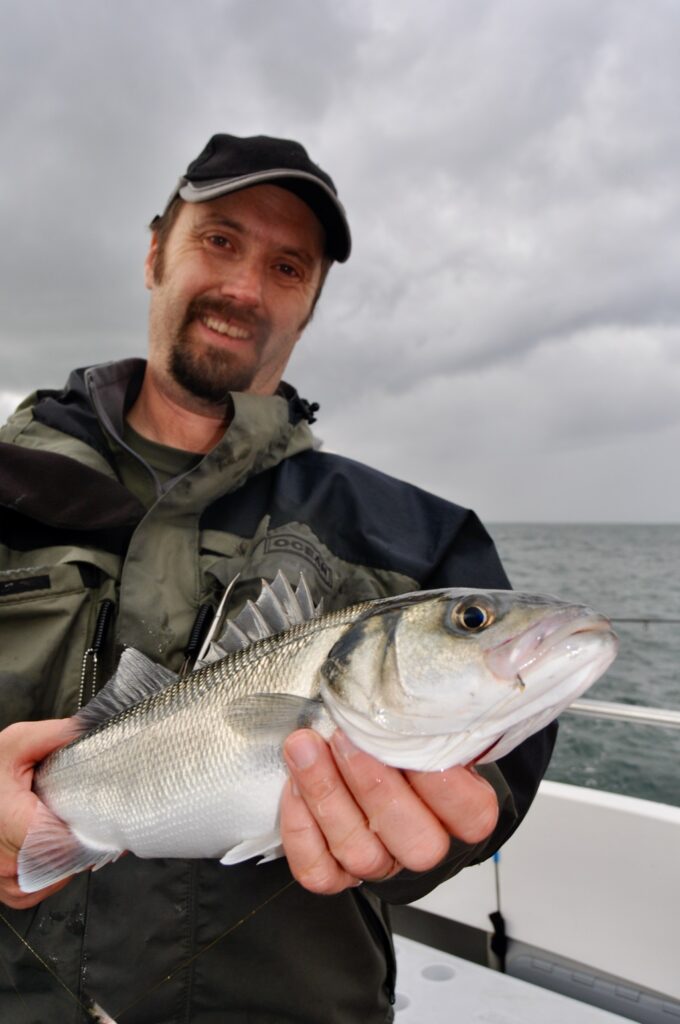
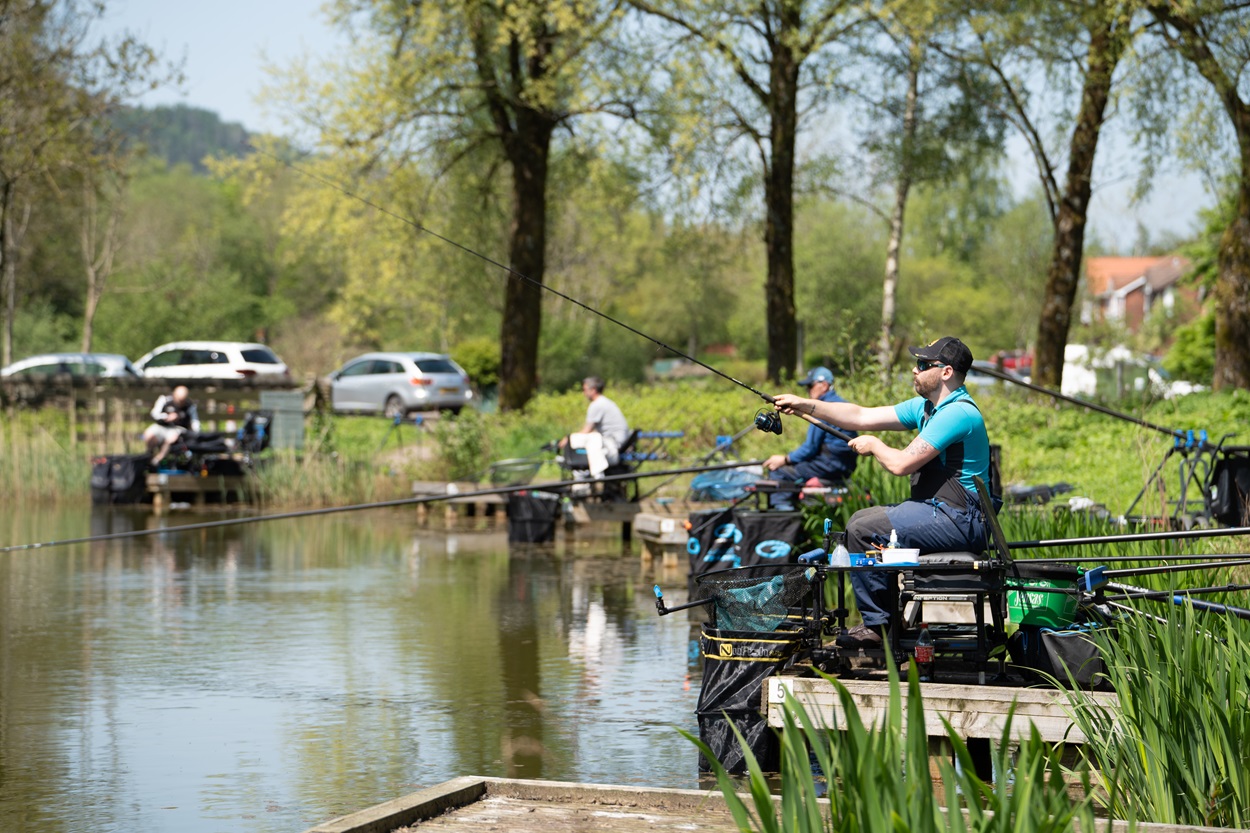
Five fishing resolutions for the New Year
Wales has so much to offer for 2026, with angling opportunities in abundance for seasoned fishers or newcomers to the…
Read More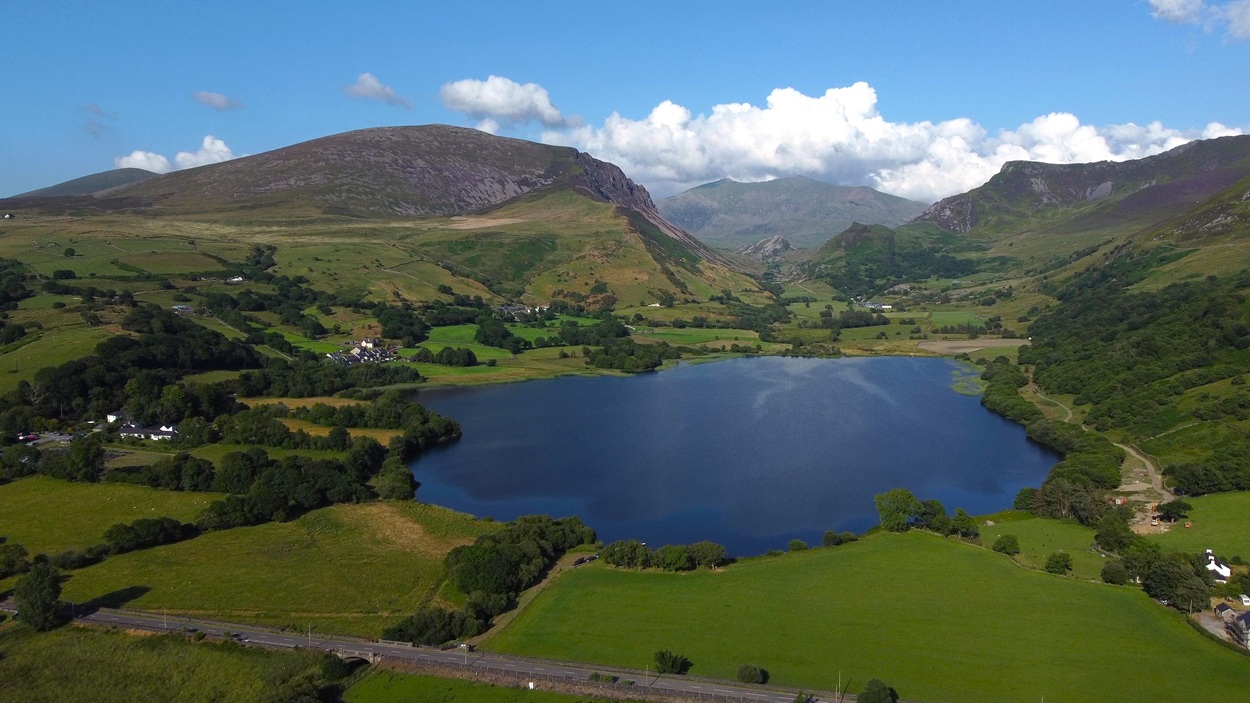
EPIC Welsh Fishing Lakes & Reservoirs from the Sky VIDEO
This cinematic drone montage showcases some of the most epic fishing lakes and reservoirs across Wales, from vast open waters…
Read More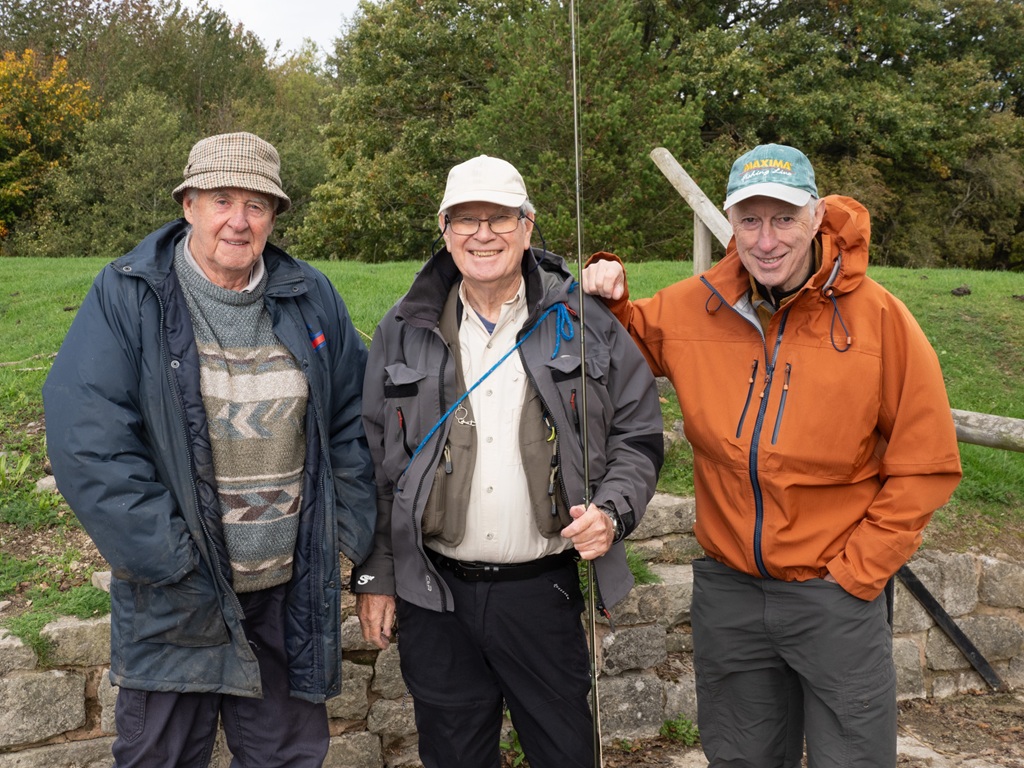
Take a Friend Fishing is Back! Take someone you know fishing for FREE this Christmas and New Year
Calling all Anglers – Take someone you know fishing for FREE between Saturday 20th December 2025 and Sunday 4th of…
Read More
